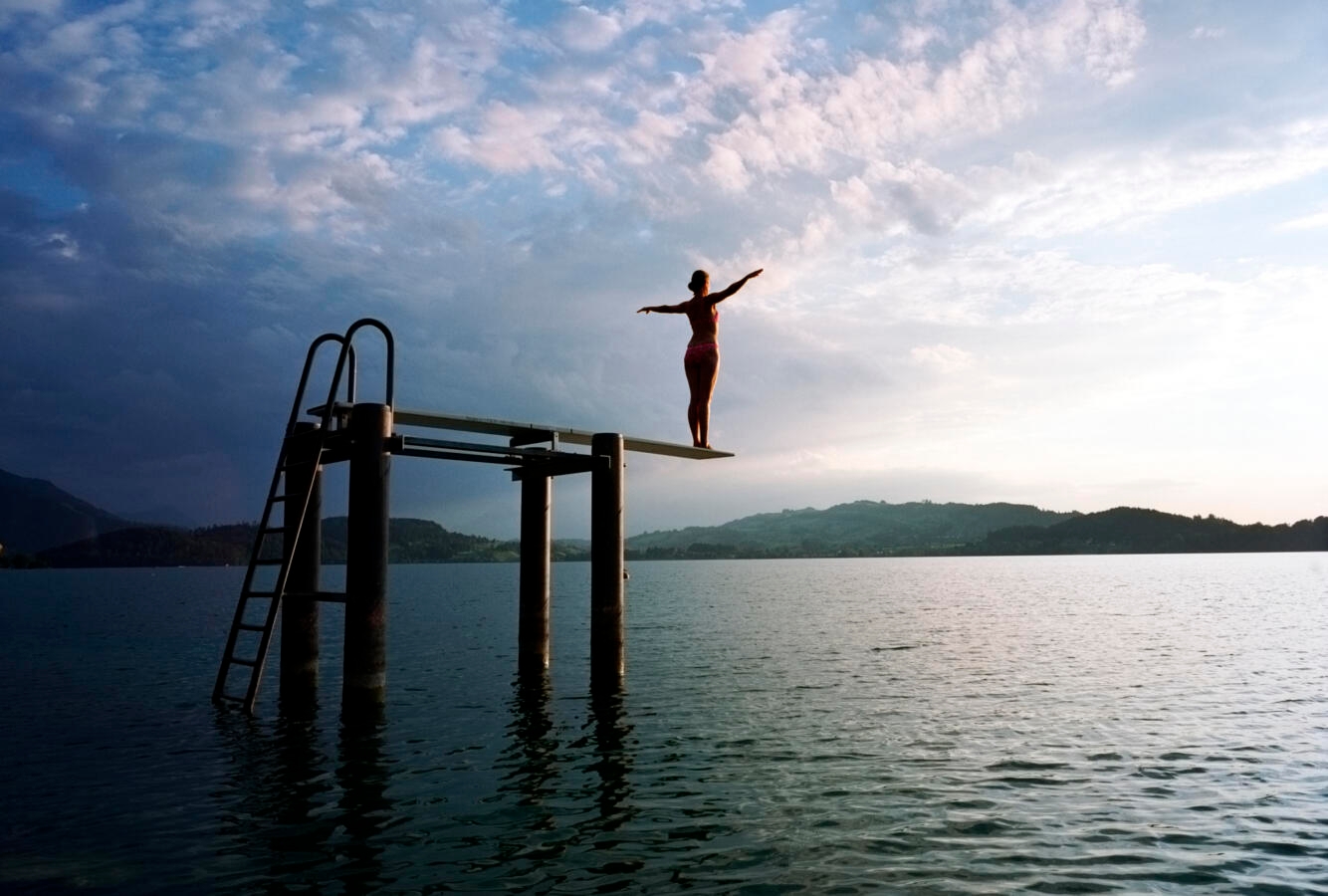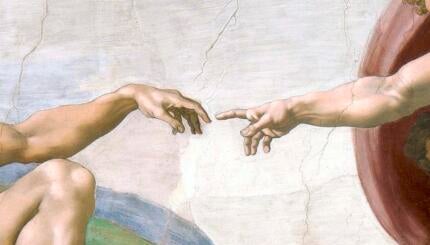The summer I was 13, my family spent a week at Ravenswood, a little family-run resort in the Wisconsin Dells where my dad had been vacationing since he was a boy.
I loved this place. Perched high on a bluff over the tamarack-stained waters of the Wisconsin River sat the old lodge with its great stone fireplace. Sandstone cliffs carved into swirling shapes by glacial melts some 10,000 years ago rose from the river’s banks like the ruins of ancient temples. Pines perfumed the sparkling air.
On the verge of adulthood in that magical place, I learned a small but striking lesson about the transformative power of imagination. A swimming pool, replete with a diving board, had been newly built atop the bluff. Day after day, I watched other kids jump off the board, plopping and plowing into the deep end of the pool. Never much of a swimmer myself, I was too scared to try. But I longed to run and dive off that board.
Each night, lying in bed, I would imagine myself striding confidently to the edge of the diving board and, in one smooth move, jackknifing deep into the water. On the very last day of our vacation, I slipped into my bathing suit, strode to the end of the board and, without fanfare, dove into the pool.
With your help, My Jewish Learning can provide endless opportunities for learning, connection and discovery.
I later learned that I had inadvertently stumbled on an active visualization technique often used by athletes and performing artists to grow and refine new neuromuscular pathways. Driven by my longing, I’d focused the formidable power of my imagination to “teach” myself a new skill.
In Jewish tradition, imagination is seen as a double-edged sword. Rebbe Nahman, the brilliant 18th century Hasidic master, warned that when we let our imaginations run wild, catastrophizing or lusting after what we desire, then internal confusion, chaos and deep spiritual malaise will ensue.
Yet, Rebbe Nachman is also reported to have said, “The essence of faith lies in the power of the imagination.” Since the dawn of consciousness, artists, mystics and healers have spun whole worlds of image and symbol. Religion itself, aspiring to embody the invisible realms of spirit, springs from the human capacity to imagine.
This week’s Torah portion hints at the need to calm the chaotic aspect of imagination, so that we can perceive truly. Moses, near the end of his life, pleads with the Israelites, who are on the verge of entering the promised land, to see and hear the deep truth of a world threaded through with unseen power. With great urgency, he exhorts them: “Re’eh, see, I place before you today a blessing and a curse: the blessing, that you will hear and understand (tish’m’un) what is spiritually imperative right now (mitzvot), and the curse, if you will not hear, not understand (lo tish’m’un) …”
When the people align themselves with that unseen power, Moses is saying, then they can free their imaginations to serve the holy. Their very ability to see and hear that truth, to seed their collective imagination with that knowing, is their blessing.
This Shabbat marks the beginning of the month of Elul, the month preceding the Days of Awe. I’m always grateful to have a whole month to prepare for Rosh Hashanah, the New Year, a transitional moment bursting with possibility and uncertainty, the ten days of Teshuvah and the solemn fast of Yom Kippur.
During Elul I try to take some time each day to swim beneath the surface busyness of my life, to awaken “the ears of my ears” with the primitive wail of the shofar, and the “eyes of my eyes” through the kind of presence that, in the words of contemporary poet and liturgist Marcia Falk, “brings about a near-magical transformation, by which ordinary life becomes extraordinary.”
I jump start the seasonal process of teshuvah –– literally, “turning” –– by looking around to take stock of where I’ve been, opening up space between how I imagine my life to be and how it really is. Emptying myself of old assumptions and outgrown identities, I make room inside for the as yet unimagined. I steep in gratitude for the many blessings I’ve been given and tend the relationships that I may have neglected.
This year, though, I’m thinking of Elul not so much as a time of turning, but as a dive into the deep end. Maybe my obsession with diving that summer long ago, as I stood poised on the edge of adulthood, came from an instinctive longing to penetrate the surface of life and engage more deeply. To do so, I had to release the fears that held me back — my fear of the water, of the impact, of the depths. I had to replace these limiting imaginings with a clear image of the goal I wished to achieve, the promised land I hoped to enter.
Elul entices me with that same promise — the pull to dive into the quiet of an underwater world and refresh my capacity to consciously turn toward imagining a different, better world. When many of us join to do this together, we begin to build the imaginal framework on which a new reality can grow.
This article initially appeared in My Jewish Learning’s Shabbat newsletter Recharge on August 27, 2022. To sign up to receive Recharge each week in your inbox, click here.



